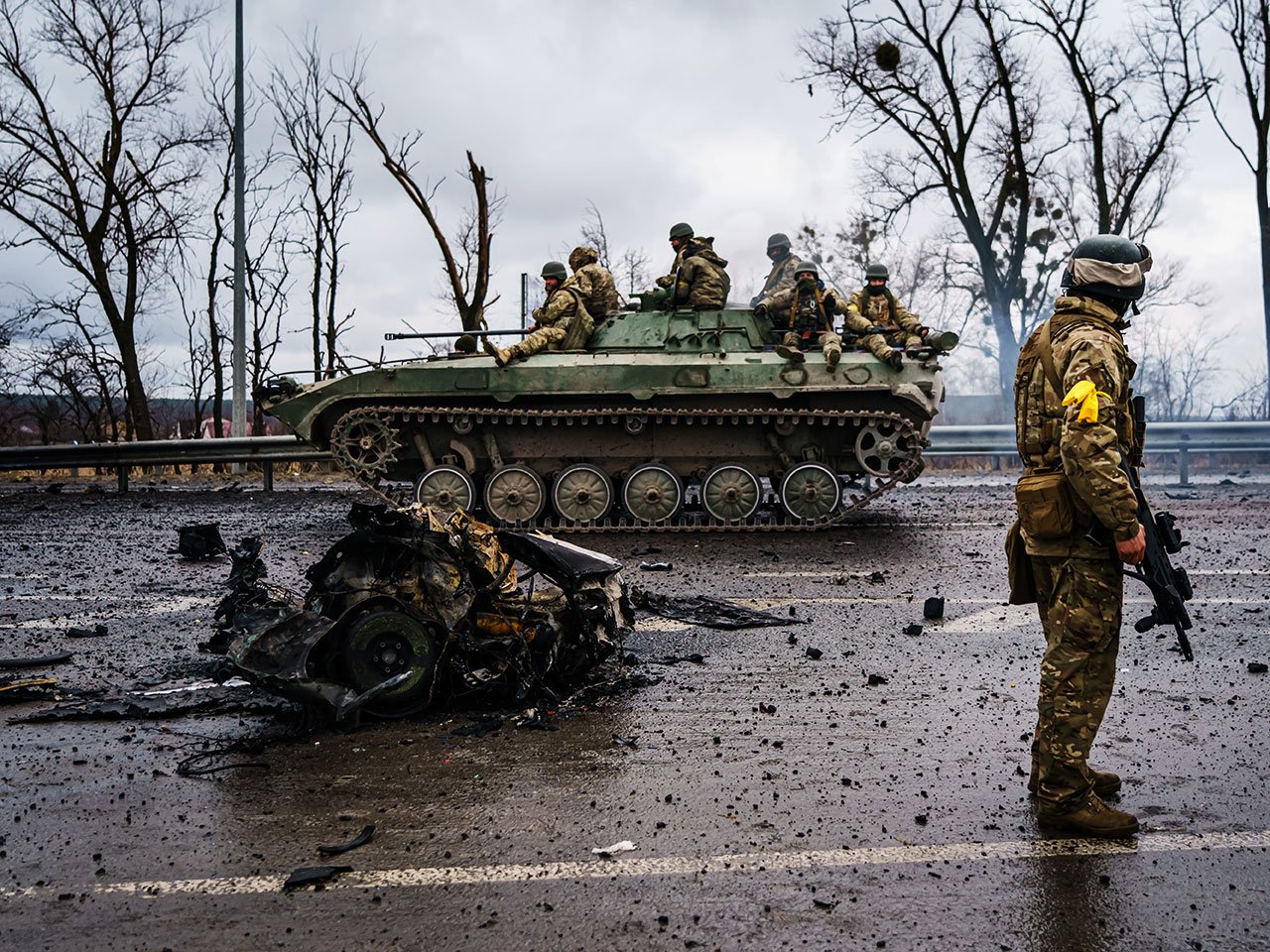Ukraine Who?
Knock. Knock. Who’s there? Ukraine. Ukraine who? You know, the Ukraine that has been the subject of the three MM sessions since the Russian invasion. So why now? Because maybe it’s always prudent to reassess foreign entanglements, given so many over the past seventy years have been like lobster traps: easy to enter; hard to live in; nearly impossible to exit.
How do you spell collateral damage? One of the most sinister terms in the language of geopolitics has to be Proxy War. It makes warfare sound like some sort of video game. Just feed it money and weapons so long as no American blood is shed. An exaggeration? Here are the exact words of Mitch McConnell last week:
“If you look at Ukraine assistance, let’s talk about where the money is really going. A significant portion of it is being spent in the United States, in 28 different states. We’re replacing the weapons that we sent to Ukraine with more modern weapons. So, we're rebuilding our industrial base. No Americans are getting killed in Ukraine. The Ukrainians are destroying the army of our biggest rivals. I have a hard time finding anything wrong with that. I think it’s wonderful that they’re defending themselves.”
That’s it, throw money and weapons into the killing fields, bolster our industrial might (with plenty of pork to the states), all the while upgrading our military. Pax Armamana. Okay, the preceding might be a stretch but it does raise topics for legitimate debate.
We will begin, though, with member Doug Gardner as our lead participant for a first-hand report after he spent ten days there on the ground. We will start our discussion going beyond the hard-boiled “Realpolitiks” considerations of war to discuss the humanitarian aspects through the selfless efforts on the part of individuals like Doug and non-profit agencies. Doug may be joined by Gaea Logan as they share their work in support of the local Ukrainian therapists amidst those unthinkably traumatic circumstances.
Only then might we return to the geopolitical elements with Yale professor Tim Snyder’s sixteen-minute podcast, laying out the most compelling geopolitical rationale for ongoing support of Ukraine Tim Snyder, Thanking Ukraine. His ten major points:
Security in Europe: our seventy-five-year concern about the possibility of a Soviet offensive in Europe, on which we have historically spent trillions of dollars, has now been realized and has been resisted by one country alone (not even a NATO member) on the strength of only 3% of our entire defense budget;
Audit: just consider how much has been accomplished by that 3% given the fact that the remaining 97% of our entire defense budget has never been audited (!), thereby making the case for an allocation doubling to 6%;
Security in the Pacific: Ukraine lessens the prospect of a Chinese attack on Taiwan in that it is absorbing Russian military power and thereby allowing the U.S. to devote more resources to China all the while teaching China that such adventurism can be costly and reducing the chances of a super-power conflict;
Feeding the World: Before the war, Ukraine was the major source of donated food to Asia and Africa; Ukraine is foremost in thwarting Russia’s threat to cut off future exports to the world;
Giving in to nuclear blackmail: Ukraine standing up to Russia’s threat to use nuclear weapons teaches the world that such threats are of less value and thereby lessens the temptation for countries to go nuclear;
Giving democracy a chance: Russia’s attack hastens the trend towards declining world democracy; Ukraine’s taking risks in the name of democracy reverses this trend;
Freedom: Ukraine’s resolve demonstrates the value placed on freedom;
Courage: Zelensky’s remaining in Kiev during the shelling is a demonstration of an ennobling courage, at a time where courage is lacking, for which we should give thanks all Ukrainians;
Search for truth: the creativity demonstrated by reporters, journalists, and poets in the search for truth has been paramount even in these most extreme of circumstances;
Chance to be on the right side: while they, not we, are on the front line, our assistance offers us the chance to be on the right side of history against this illegal war.
So there you (we) have it, his compelling vision and the case for our continued, even increased, Ukrainian assistance. Against this backdrop we have our focus article offering a different, arguably more sober-minded, assessment of where we find ourselves Why No On Can End The Ukraine War – making the case, five (now well over six) hundred days in, that both sides are caught in the same paradox i.e. while nobody is going to march on Moscow, any talk of regime change is but “feckless over-optimism.” As such, neither side is likely to surrender meaning the war could go on indefinitely.
Let us discuss, particularly now that the issue has moved front and center in the ongoing Congressional funding debate. How about splitting the difference by combining Prof. Snyder’s suggestion to double the current Ukrainian budget in return for an agreement to audit the remaining 97% of the defense budget department bloat?

